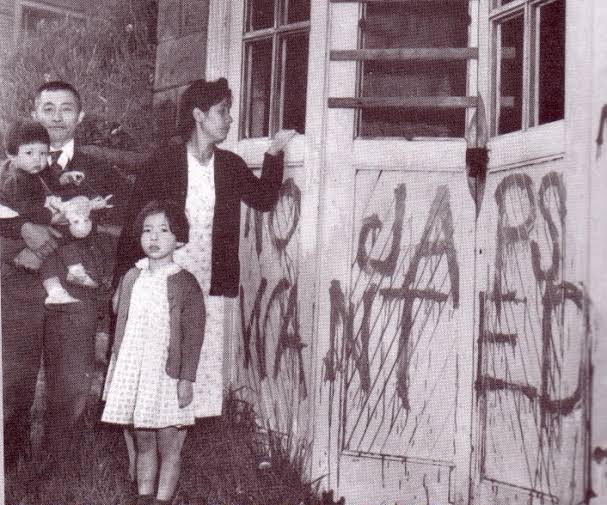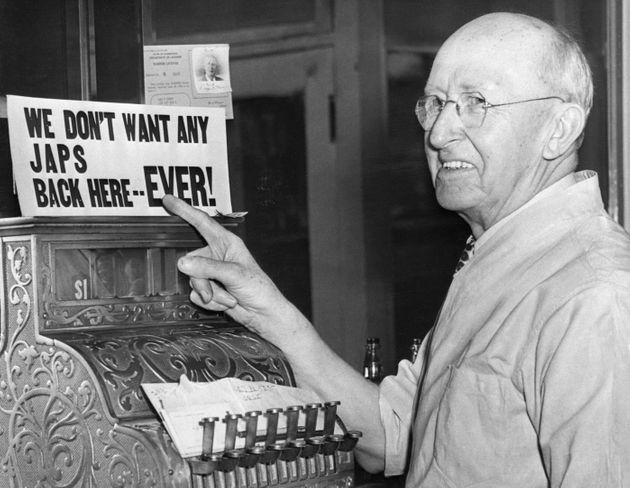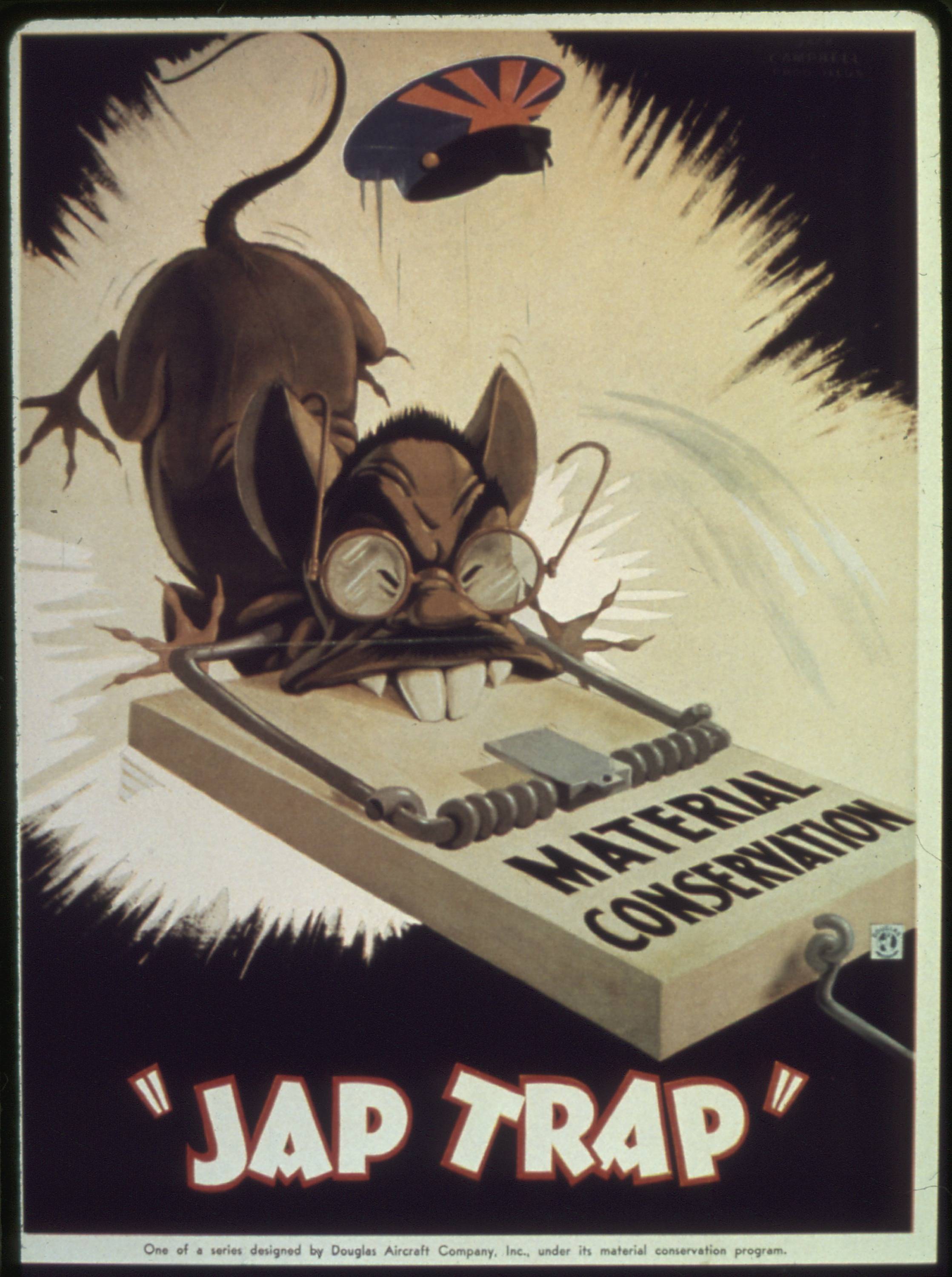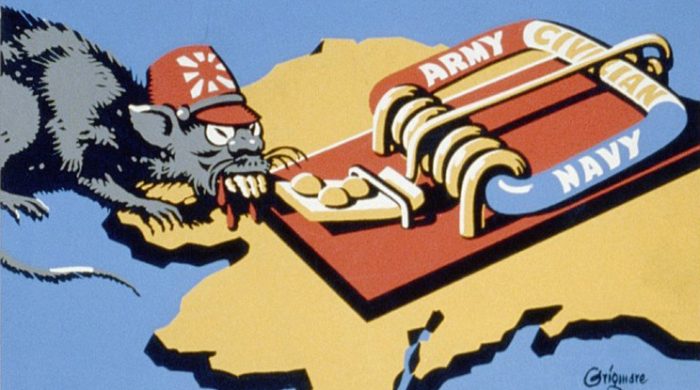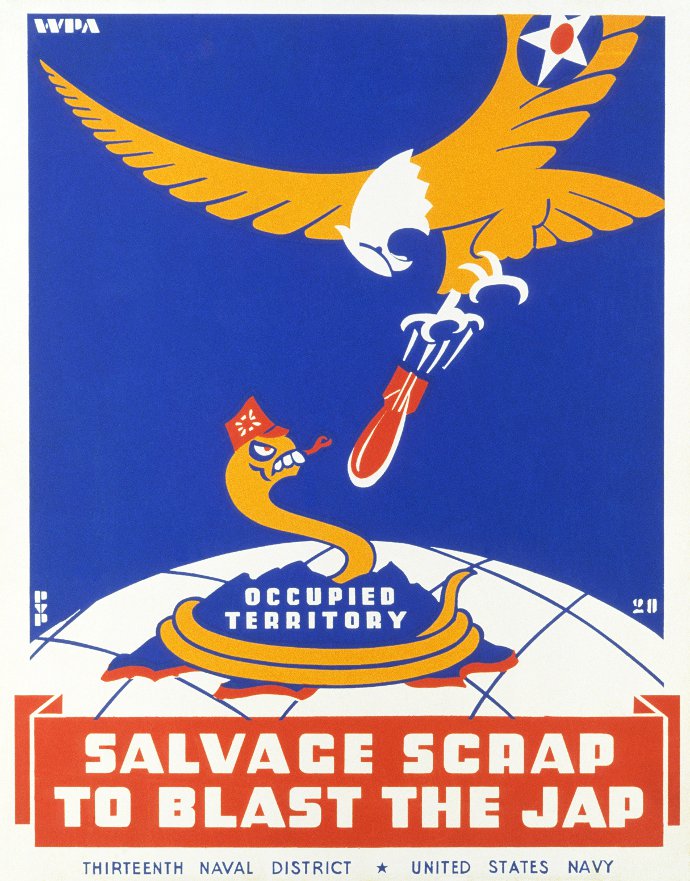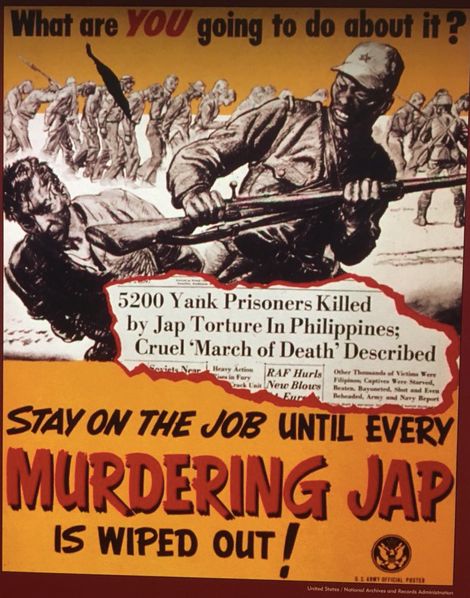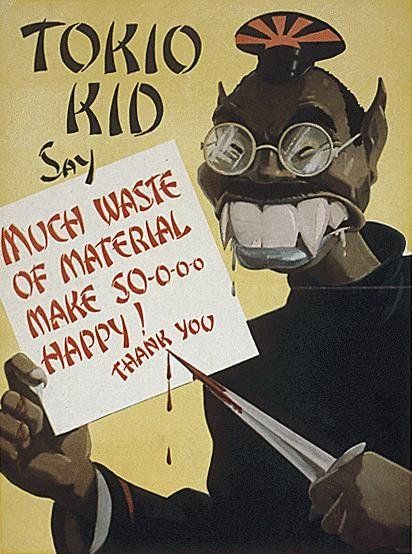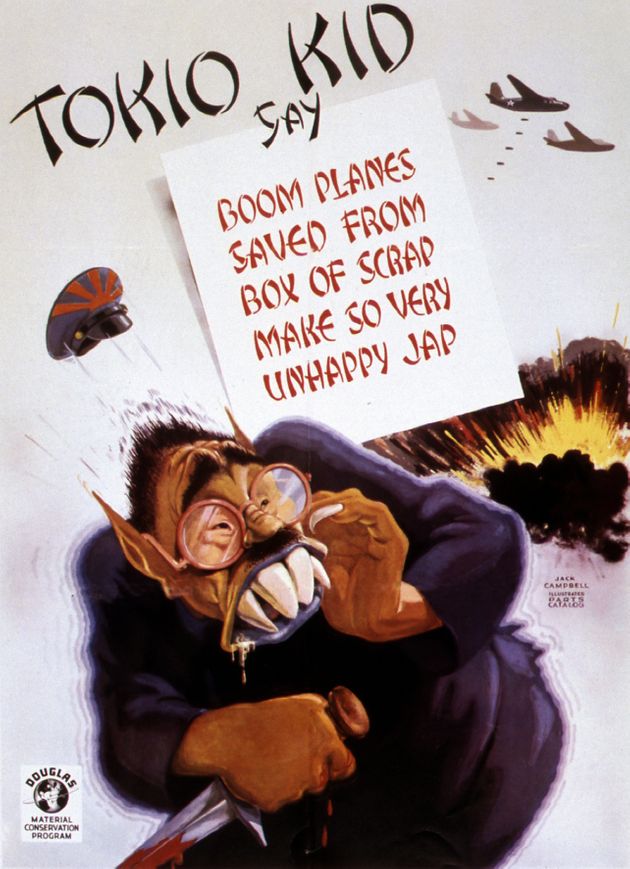Jap (as a derogatory term for Japanese):
In America, the term Jap came into wide use in 1860 to refer to the members of the Japanese embassy to the United States (see "Japs in 19th-century popular usage"). In newspapers, magazine articles, and nonfiction accounts of all kinds it was mostly just a breezy abbreviation, and in its earliest usages referred to specific groups--the embassy, or a particular troupe of Japanese acrobats touring the U.S. Only gradually did "the Japs" become a larger category. [College of Liberal Arts and Sciences]
Jap was not considered primarily offensive; however, during and after the events of World War II, the term became derogatory. Nisei veterans who served in World War II were shunned with signs that read No Japs Allowed and No Japs Wanted, denied service in shops and restaurants, and had their homes and property vandalized. [Wikipedia]
According to Japan Talk, the term Jap was not offensive before the World War II, to quote:
Q: Is the word Jap considered derogatory?
Yes, this phrase is widely considered a racial slur. Much of the English speaking world and the Japanese themselves consider this to be a derogatory term. If you use this word to describe Japanese people or culture — you are likely to offend.
The United States
In the United States, the word 'Jap' was sometimes used as a contraction of 'Japanese' before WWII. It wasn't considered derogatory. During the war, the word was widely used in an extremely derogatory way. This included government propaganda. As a result, the word was widely considered a racial slur after the war. Its use dropped dramatically. Today, it's considered extremely offensive by Japanese Americans.
Canada
Japanese Canadians consider the term offensive.
UK
The word Jap is generally considered derogatory in the UK. Britain is home to the largest Japanese community in Europe who consider the term offensive. The Japanese Embassy in London went after a London newspaper for using the term in 2011. The following statement came from the embassy at that time: > Most Japanese people find the word Jap offensive, irrespective of the circumstances in which it is used. ~ Embassy of Japan in the UK
Singapore
In Singapore, the word Jap is widely used as a contraction of Japanese and isn't considered derogatory.
Japan
The Japanese are very aware that the word Jap is often used in a derogatory sense. Using this word is likely to be hurtful.
From densho.org:
In the 1950s, Shosuke Sasaki launched a campaign to have the word “Jap” re-classed as a racial slur and eliminated from print media. He would continue that work for the better part of the next 20 years.
As early as 1880, the English Oxford dictionary noted “Jap” as a colloquial term of abbreviation. Though it may have started out as a neutral term, it took on increasingly negative connotations as anti-Japanese sentiment grew. It was used as a slur against Japanese immigrants and, later, in reference to Japanese American citizens. Following World War II, the use of the word became even more opprobrious but was still in wide use.
In a letter to the Executive Committee of the Newspaper Guild of New York, Sasaki requested that Newspaper Guild Executive Committee place “Jap” in the same category as other racial epithets, discouraging use in newspapers and magazines. His arguments included:
- “The term 'Jap' is regarded by the Japanese as an epithet of derision. Its use is resented by all Japanese and persons of Japanese ancestry.”
- “The excuse that the term 'Jap' is usually used without any derogatory intention is pointless. It frequently has been and is being used with the connotation of contempt. Furthermore, not even a moron would persist in calling a person by any name which that person considered offensive, when at the same time the goodwill and friendship of that person were desired.“
- “The use of the term 'Jap' completely nullifies in the eyes of the Japanese all American claims to being the world’s champion of human dignity.”
In February 1952 , the New York Newspaper Guild passed a resolution and sent a letter sent to all New York publishers. But the resolution was not as effective as Sasaki had hoped and “newspapers continued to use the epithet as freely as ever.” Sasaki mounted a letter-writing campaign to the offending papers and organized protests with the help of the New York JACL.
This American propaganda poster, created in the months following the bombing of Pearl Harbor by the Japanese, is a prominent example of name calling. In this poster, the Japanese are derogatorily depicted as rats while the words Jap Trap is prominently displayed in bold, with quotation marks, near the bottom of the poster. During the Second World War, many Americans used the term “Jap” as a derogatory term to refer to the Japanese, mainly because of the word’s ability to create perfect rhyme with other words and thus, create easy to memorize slogans such as Let’s blast the Jap clean off the map and Jap Trap. By referring to the Japanese as “Jap” in this poster, the propagandist aims to brew anti-Japanese sentiment among its American audience. The rat itself, with its wrinkled, hairless skin, buck teeth, and clawed hands is extremely displeasing to the eye and looks more like a vermin than a human. Coupled with the stereotypical manner the propagandist drew this poster, with its narrow eyes, black hair, circular glasses, and shriveled skin, and the slogan, Jap Trap, it is hard not to associate the Japanese with a negative image after viewing this poster. The propagandist uses this extremely insulting and disgusting portrayal of the Japanese to associate the “Japs” with a negative image of a vermin and brew hatred among the American people. [PropangandaProjectJustin]
Some other anti-Japanese posters:
During the WWII, they were also referred to as Yellow Bucktoothed:
Note: Jap's eye is a British vulgar slang for the slit of the penis; the male urethral meatus. [Wikitionary]

